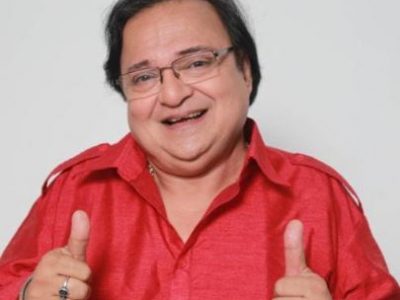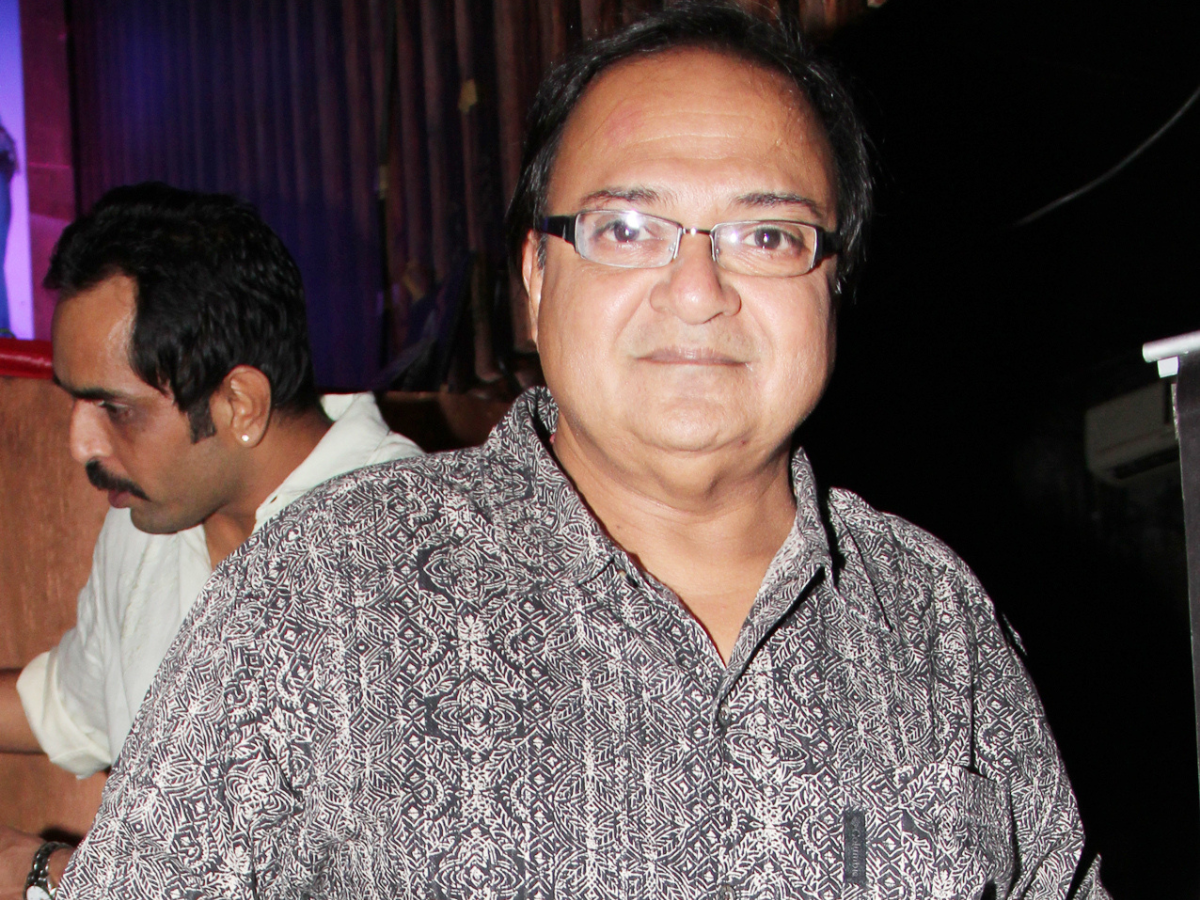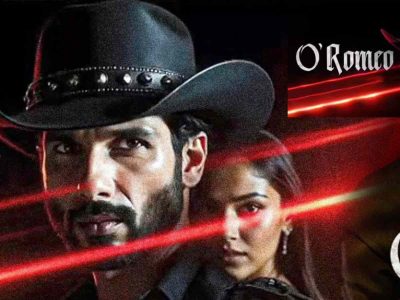From savouring chicken at Delhi’s Kake Da Dhaba to Kareem’s delicacies at Hazrat Nizamuddin, learning bowling from the late Bishan Singh Bedi to skipping mining engineer’s exams for the love of theatre, veteran actor Rakesh Bedi’s life in Delhi is a potpourri of experiences that turns this Delhiite nostalgic, each time he visits his hometown.
While Bedi will receive the Rashtriya Gaurav Award at the Constitution Club of India on November 30, his play ‘Massage’ would be staged at Kamani Auditorium on December 3, at 6.30 pm.
Penned by prominent playwright (late) Vijay Tendulkar, the play, which has been shown thousands of times across the globe, is completing its 21st year.
In this critically acclaimed drama, Bedi is a single actor on-stage, playing 11 characters in a two-hour monologue. He tells several tales on lives of the people; each character narrates a different philosophy of life.
“I could feel people’s love for Massage through the likes of famous homoeopath Dr Batra (of Batra Clinic), who comes to watch this play each time it is acted. Last time when he came, I wanted to honour him on-stage, so I asked, ‘I have learnt that you have seen this play seven times.’ He said, ‘No, 10 times. And when you come 11th time, I will see it again!’. Similarly, today I received a message from a girl I know in Delhi. She said, ‘I watched this play nine times and I am buying the ticket again’.”
The success of this exceptional monologue by Tendulkar makes Bedi proud as he understands it is no mean feat for him.
“When actors or those interested in acting come to meet me after watching it, there are emotions running on their faces clearly reflecting their yearning to play such a character. Their thoughts, such as ‘Why not me? ’Why can’t I do what Rakesh Bedi has done? Or will I ever be able to do it?’, mirror on their faces,” he says. They end up asking him how could he do it! This, Bedi feels, keeps him alive.
Love for Delhi food
Mention Delhi and the sumptuous memories flash — eating at Kake Da Dhaba at Connaught Place and Kareem’s at Hazrat Nizamuddin.
The humourist in him erupts as he recalls, “We used to eat chicken at Kake Da Dhaba, Tab paise bhi kum hote they aur khana bada tasty aur affordable hota thaa (We had less money and the food was tasty and affordable). But while I used to enjoy my chicken, some rats would scroll up and down my feet from beneath the chair. I wouldn’t be surprised if this still continues there,” he bursts into laughter, recollecting the screams that would divert his attention from the delicious leg-piece!
With his dear friend and actor (late) Farooque Shaikh, he would “regularly visit Kareem’s during the shooting of Chashm-e-Baddoor” in 1980.

A happy failure
Bedi studied at Somerville School, Kailash Colony and Kendriya Vidyalaya, Andrews Ganj. He later joined Bhagat Singh College in Delhi.
That he would become anything except an actor, never crossed his mind.
The child ‘Kaku’ was always a mohalla entertainer as it came naturally to him. Come drama, marriage, parties in and around his home, people would swear by his theatrics.
“Mohalle mein jab bhi koi chota-bada function hota thaa, sab kehte they Kaku ko bulao, vo entertain karega (Whenever there would be a function in our locality, people would call me for entertainment).”
It echoed at school and college cultural and drama units too. Such was his love for acting that he “didn’t even think of doing a regular job”.
However, looking at his aeronautical engineer father, who was working with Indian Airlines then, he thought of becoming a mining engineer and decided to appear in its entrance exam.
“I thought if my father was flying in the air, I would roam inside the earth,” he jests.
He narrates it like a typical comedian on stage, “The entrance exam held at IIT Delhi had 13 questions. Every question had three parts. I knew only question 7 (a). The paper had started at 9 am. At 9.03, I handed over the sheet to the examiner and said, ‘Lo, bhaii! Main to chala (I am going)’. Shocked, he asked, ‘Where?’ I said, ‘I am going for my theatre rehearsals. That’s where I belong’, and I left the hall, grinning my way to my destination,” he surges into a giggle at that failure.
Sharing a hilarious anecdote, Bedi recalls time when he was acting in a college play called Zeher (poison) for which he had to sport a bearded look.
His teacher asked him to publicise the poster of the play in the Capital.
“With laiei (locally-made gum with wheat flour) in one hand and poster on the other, I rode pillion on my friend’s scooter. As we were pasting the poster on a wall at midnight, a policewala came. Looking at Zeher as the title on the poster, and me bearded, he thought I was a terrorist, and we intended to incite people for anti-social activities. We insisted it was a play and I was an actor. We showed him the venue and the date too. He wouldn’t believe. He wanted to arrest us. So, to win his trust, I had to enact a scene from the play, at 1 am, in the middle-of-the road!” he laughs adding, “hum jaan bacha ke kisi tarah aaye! (We returned after a narrow escape).”
Bedi’s passion for theatre saw him get associated with IPTA (Indian People’s Theatre Association) for 46 years. He has penned many plays including Mera Voh Matlab Nahi Thaa which has been immensely popular, apart from Biwi O Biwi, Jab we Separated, Jail Mein Khel, Patte Khul Gaye among others.
Destination Mumbai
Cinema was his destination so he didn’t join Delhi’s prestigious and much sought after National School of Drama (NSD). Instead, he chose FTII (Films and Television Institute of India), Pune.
“Those who had joined NSD in those days, remained struggling actors in theatre groups and barely made it to films. So, I went to FTII because I knew so many FTII alumni became massively successful in the film industry as actors, directors and producers. In the film world though, I had to begin from scratch as I had no godfather. That was quite a struggle. My film journey was never a cake-walk. But I continued working hard and maintained my cool.”
Bedi chose to be a comedian, sure of the fact that he didn’t have a traditional look and constitution of a mainstream actor like Dilip Kumar or Dharmendra, nor that wicked look or gym-honed body to be a villain. No one used to come to the film industry to be a comedian, they would be so by chance or lack of roles.
“But I had decided to fill that space, not many newcomers were vying for it, anyway.”
He has always shuttled between Delhi and Mumbai, brought his plays and kept in touch with friends around.
Delhi lacks professionalism
Though Bedi’s love for Delhi doesn’t end, he minces no words complaining that the Capital has always lacked professionalism. One enquires what Delhi needs to learn from Mumbai, he hurries, “professionalism!”
“Delhi still hasn’t learnt the art of professionalism. If a shooting has to begin at 9 am, it ends up starting anytime between 11 am to 3 pm and never obviously ends on time. People in Delhi do not honour time and commercial commitments. They take both casually unlike Mumbai where it is like zaban de di to ho jayega (if you give a word, it will happen). A wit fused with sarcasm, slips out, “Dilli wale phailte bhi bohot hain aur phenkte bhi bohot hain (Delhiites are quite pretentious).”
One remembers Nevile Tuli, a well-known gallerist and art enthusiast, suggesting a film industry in Delhi at a public forum in mid-2000s, an idea even Shah Rukh Khan had endorsed when this correspondent asked him.
Delhi could have one, Bedi thinks, if it was professional enough to create and sustain it.
“Delhi built so many studios, television channels and media houses. It has Doordarshan too. Though the government gave it Noida to build a film city, but it still could never turn it into a throbbing film world like Mumbai. It is because of the lack of professionals. Delhi sees the filmi world when Mumbaiwalas visit to shoot or for other reasons. I haven’t heard of many instances of a film where actors, producers, writers, camera-persons or directors all are from Delhi so it could be said, ‘Ye Dilli waalon ki film hai (this film is for Delhiites). For that very reason, film-makers come to Mumbai as they now understand they would meet professionals there and the work done will have a class.”
A poet too
The poet in him often pens down feelings. Still boasting of unshaken voice and energetic laughter of a 30-year-old, the septuagenarian creates simple shayri.
Sample this –
Har dil mein daba rehta aik dard ka aashar
Ye aur baat hai ke ba-qalam nahi hota
Ye kaante aaj de gaya kal phool bhi dega
Ye chlata rehta hai samay kabhi qayam nahi hota
(Not every couplet is penned, in pain that’s built;
Today’s thorns would be blossoms tomorrow, the time never stands still).
The writer is a senior journalist, poet, co-author of ‘Muslims in India’ and art and music curator




